A Franchise Enterprise
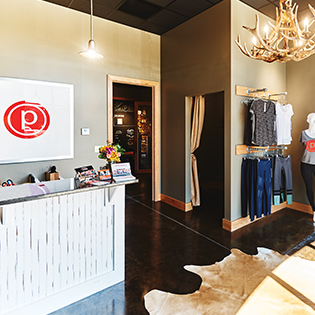
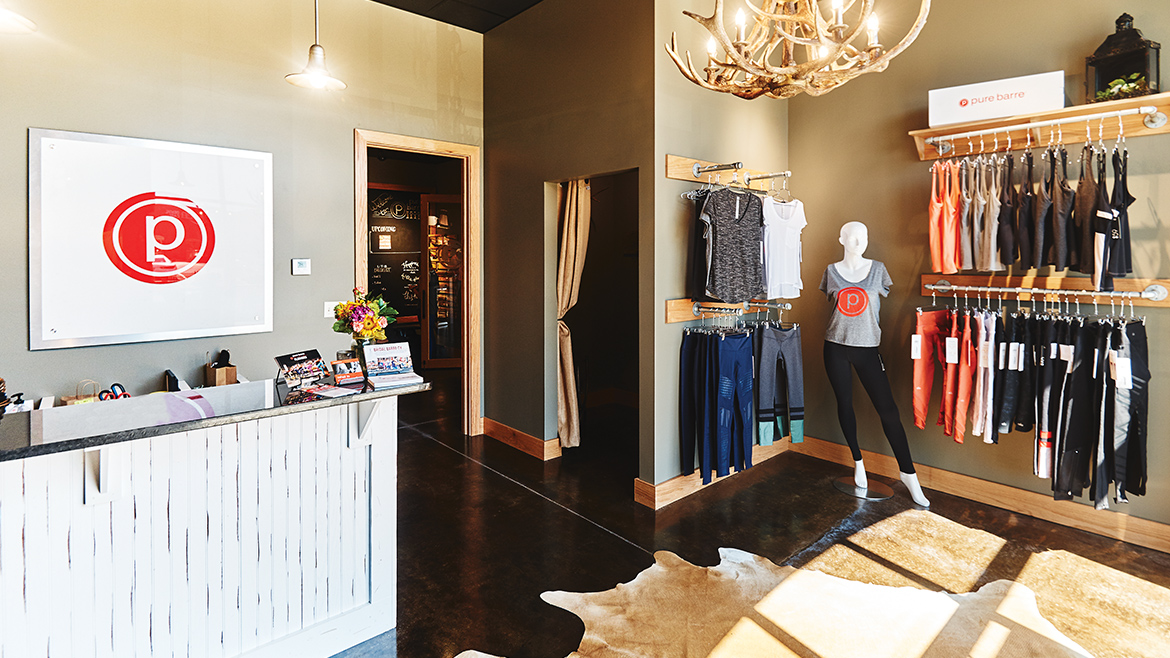
Franchise owners experience the best of big and small business.
There is little competition for Anup Thakkar’s favorite task at Dunkin’ Donuts.
The franchise owner of the restaurant located at the corner of Green Meadows and Providence always loves to spend part of his day as drive-thru cashier.
Here, the energy flows as freely as caffeine, since this is where 70 percent of morning business, on average, originates. But even better, for Thakkar, is the proximity to the customers. He likes the chance to ask about their day and see their expressions when he hands them a bag of donuts or a cup of coffee.
“It’s spectacular to interact with them,” Thakkar says. “I get to see smiles every single day when they come here.”
Throughout Columbia, there is an array of franchises embedded into the fabric of daily life. From the national to the regional, Columbia pretty much has it all. But don’t think only in terms of mega-brands or easy name recognition. Move behind the scenes. Look for the franchisees – people like Thakkar, dedicated and sincere entrepreneurs who not only look for fertile soil in which a franchise can flourish, but who also pour out their heart and soul to connect with the community they call home.
“So many factors play into the success of a business,” Thakkar says. “You can have the greatest product and the greatest set of employees, but if you don’t have the support from the local community, none of that matters. This has allowed us to get closer to the community. By far, it has been one the best decisions I’ve made in my life.”
Starting with Passion
For Thakkar, 37, becoming a franchise owner after 10 years in a small business was a passion project that came after a long wait.
Dunkin’ Donuts coffee fueled Thakkar’s college years at Kean University on the East Coast. He would start and end almost every day with a cup. You couldn’t beat the cost or the taste.
When Thakkar moved to Columbia, he couldn’t find a Dunkin’ Donuts to sustain his habit. In May 2015, he finally changed that, opening a Dunkin’ Donuts and Baskin-Robbins combination store.
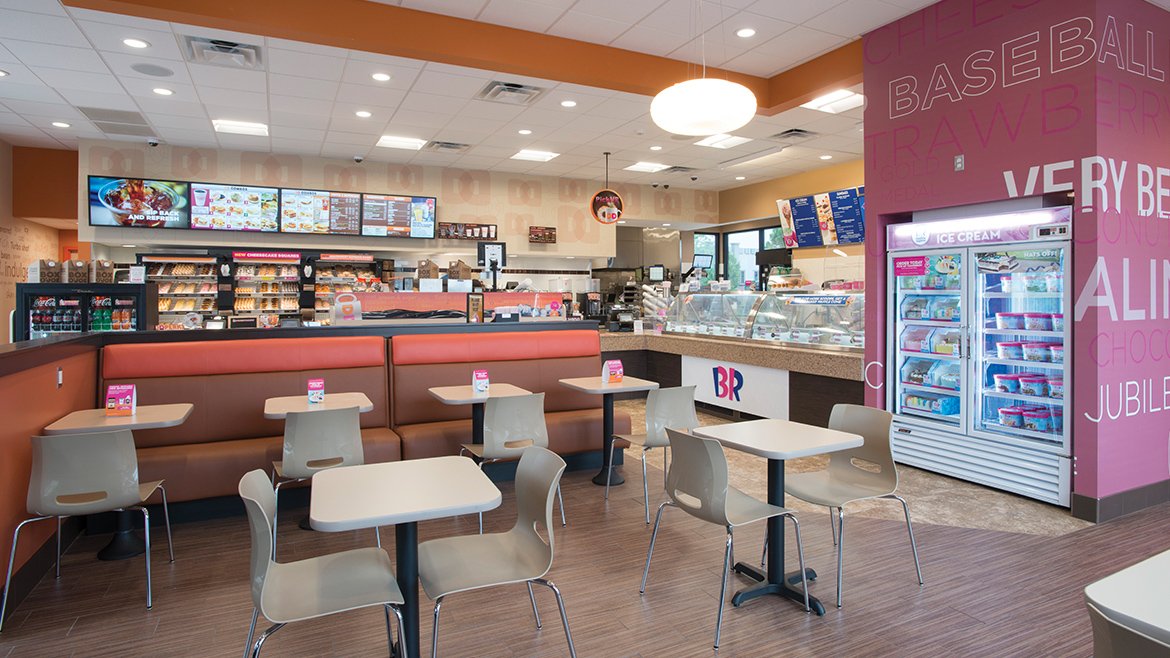
“I wanted to venture out and start a new project, and this was by far the very first choice in my mind,” Thakkar says. “I couldn’t think of anything else but Dunkin’ Donuts.”
After considering the costs of buying into a franchise, franchisees agree that few ingredients are as essential as picking a brand and product you care about. Most lean on their passion and personal experiences to drive their interest in opening a store or restaurant.
Lauren Matteson’s affection took a few days to develop. During a vacation in Watercolor, Florida, she joined some friends for a fitness class at a Pure Barre studio.
“I took a class and hated it,” Matteson says. “So I went back every day to see why it was so hard, and by the end of the week, I had fallen in love with the technique and the community of women down there. It’s a touristy spot, but I was really impressed with how the owner was able to make it feel comfortable and create a strong community of women, even though not everyone knew each other.”
After leaving Florida, Matteson did a little research and applied for a franchise. She was 23 years old and a recent graduate of MU, where she majored in strategic communication and minored in business.
“I doubt they have many people ask to franchise after six classes,” Matteson, now 27, says. “And to be honest, I didn’t even really understand it was a franchise at the time.”
But Matteson’s curiosity trumped her naiveté. She knew that the challenging workouts and the culture of the studio would be welcomed in a city as active and health-conscious as Columbia. Pure Barre agreed.
Pure Barre opened on Nifong Boulevard in October 2012. Three years later, Matteson added a second location in Chesterfield, and she now employs 30 total staff members. Her intention to create a boutique fitness space for women, where they feel safe and they are known, where a specialized workout makes a positive impact, is coming to fruition.
“On the hard days, I have to go back to the passion to remind myself why I am doing this — why I am working 70-plus hours a week, why I am fixing and cleaning toilets, why I am going outside of my comfort zone a lot,” Matteson says. “As soon as passion is not at the heart of what you’re doing, people see through that, and your business won’t be successful and your employees won’t be as motivated. It can become toxic quick.”
Lean on Me
If Matteson had to start over and choose between starting an independent business or buying into a franchise, she would take the same path.
As a franchise owner, she can lean on an experienced and proven entity for support. She doesn’t have to do it alone. Matteson has learned from what Howard Schultz, the founder of Starbucks, illustrated in his book, “Onward”: “Yes, love what you do, but your company should love you back.”
Matteson’s franchise fee paid for the rights to use the Pure Barre name and open a studio under their franchise requirements. But she also pays royalties monthly in exchange for workout techniques, marketing materials, and additional resources.
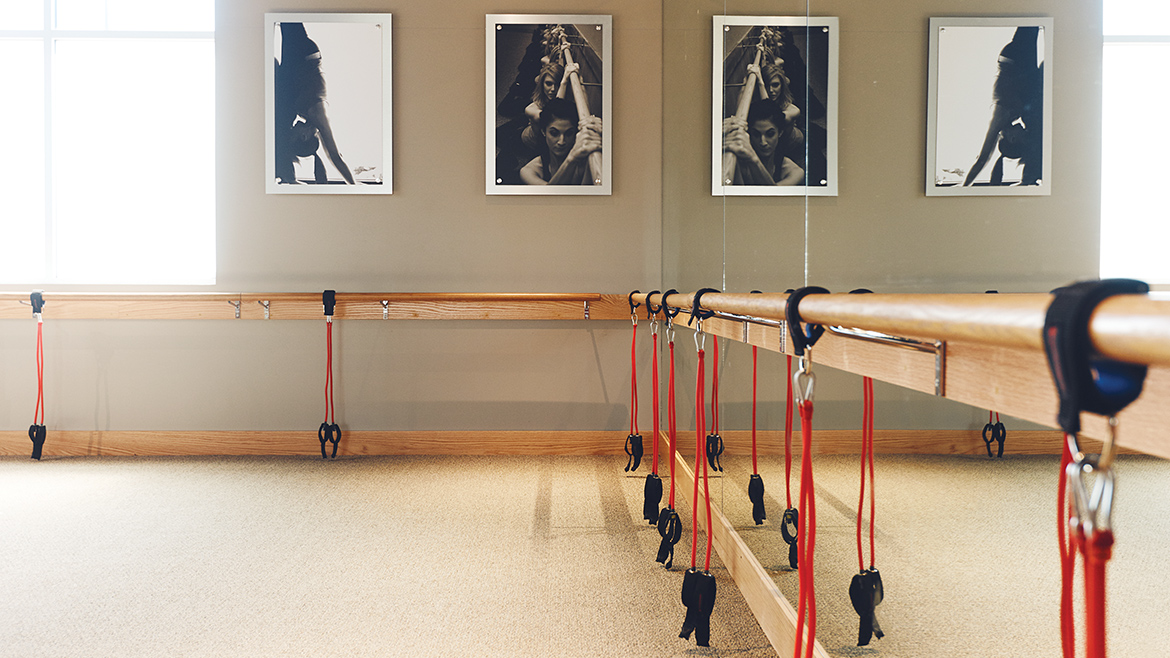
Her fiancé and business neighbor Stephen Shinn, who co-founded The Fitness Company, doesn’t have the same luxury. He had to start his business from scratch. For instance, Shinn spent three months designing and building the studio; without the help of a contractor, they wasted money on ideas they thought would be great but didn’t work.
Pure Barre told Matteson what the studio needed to look like, and they supplied the build-out specifications, including signage, wall colors, wood finishes, mirrors, and more. As Pure Barre has matured and expanded, Matteson said the level of guidance has only improved. This gave her the confidence to relocate the Columbia studio this summer, to a new 1,500-foot space on Bluff Creek Drive.
“When you own your own business, and this is true whether you’re a franchisee or not, you go to bed every night thinking of 100 more things you could be doing,” Matteson says. “But it’s a relief knowing we have a franchise consultant who’s always available to help and answer questions.”
Thakkar and his business partners, Ramesh Patel and Prashant Patel, brought plenty of business experience into Dunkin’ Donuts. That didn’t keep them from leaning on all the people Dunkin’ brands provided to get the restaurant up and running. It was almost like having personal assistants in key areas like development, construction, marketing, and operations.
This support ensures that whether you visit a Dunkin’ Donuts in Columbia or New York City, the service and environment feel the same. When the national brand is consistent and strong, the local franchises thrive.
“Anyone who owns their own business knows what a difficult process it is from day one, but the support I got from the franchise was unbelievable,” says Thakkar, who plans to open two more Dunkin’ Donuts stores in the area by 2017. “It was one of the smoothest transactions we’ve ever had. Seeing that love and passion coming from Dunkin’, you just want to adopt that and carry it over.”
Stick to the Plan
Mike Monahan and his wife, Amy, picked Jimmy John’s as their franchise of choice, in the summer of 2000, partly because of the bread. It was the best bread they had tasted since leaving the east coast.
But Mike’s excitement got a quick reality check.
“After a few weeks, I was exhausted,” says Monahan. He would work open to close and remembers his son, Max, doing homework and sleeping in the booths. “I was so tired at the end of the night I couldn’t even drive home. I was damn near in tears, wondering what I got myself into.”
Relief came when Monahan started delegating and turned his focus to implementing the proven franchise system that Jimmy John’s had in place. Every franchise has a unique formula, and you have to stick to it. Monahan describes the Jimmy John’s system as “simple and fast,” which is part of why it’s exploding nationwide, with almost 2,800 stores and another 2,000 that have been sold. Jimmy John’s opens a store every 37 hours. They’re also frequently recognized as the No. 1 franchise on lists by Forbes or Entrepreneur, for example.
“Do I agree with everything they have us do at Jimmy John’s? Heck no,” Monahan says. “But I do it because it works. Do I think I have some good ideas? Sure. Unfortunately, it doesn’t say Mikey John’s over the door. It says Jimmy John’s. So I got to do what he says.”
Monahan, 53, owns five Jimmy John’s locations in Columbia and four more across Missouri. In January, the Monahans were named the 2015 Operators of the Year (for owners who operate more than six stores) at the Jimmy John’s National Convention. He also owns Sake Japanese Bistro, in downtown Columbia; he employs a total of 386 people.
Several years ago, Monahan was asked to speak at a Jimmy John’s conference about how to turn around a store. Monahan talked about a series of cassette tapes he kept in his car that outlined how to buy real estate with no money down.
“The reason I’ve succeeded in real estate is the same reason I’ve succeed at Jimmy John’s — I’m following the system,” Monahan says. “I’m not recreating the wheel. Jimmy John’s has created a system that works, and it’s repeatable. It takes away a lot of the risks and failures.”
Get Creative
Since opening her first Smoothie King franchise, on Grindstone Parkway, Jackie Floyd, 31, discovered there is a lack of familiarity with the national brand in Columbia. Many people assume it’s an ice cream shop.
“There are still a lot of people out there who don’t know our product and what we can offer,” Floyd says.
Buying into a franchise and gaining access to an established brand with a proven model does not guarantee an easy path to success. You still have to find ways to market your product and attract customers. A good franchise encourages you to add your creativity to the mix to get this job done.
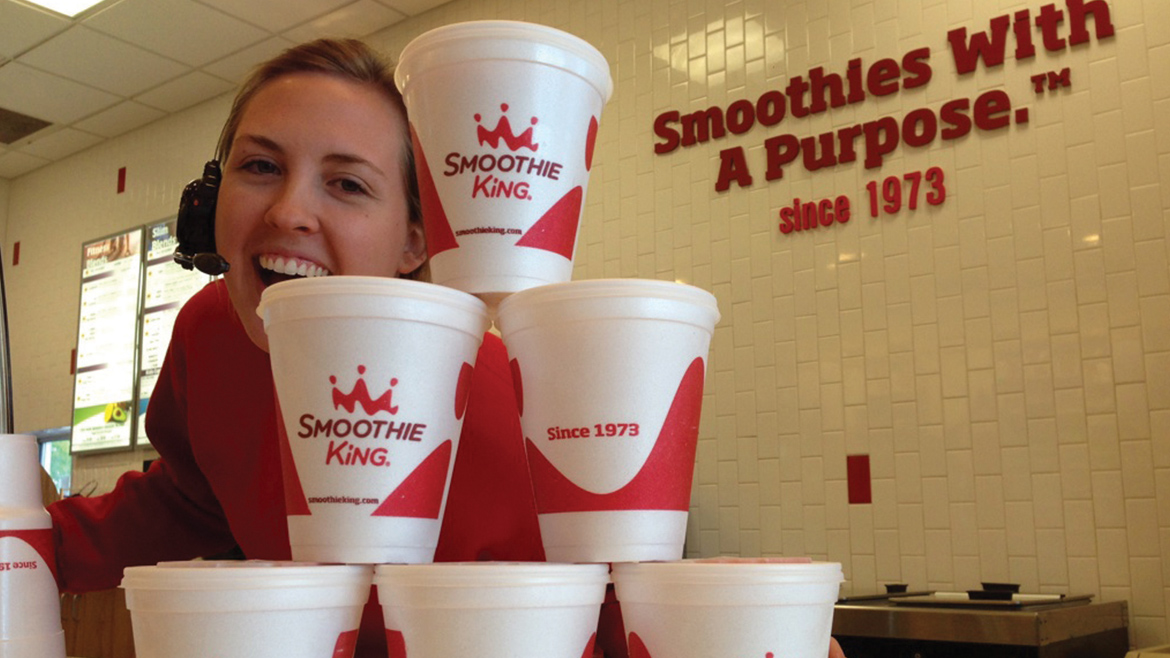
Floyd has enjoyed the challenge of combating misconceptions and raising awareness about Smoothie King, which has 690 stores in the United States. One way she is trying to bridge the knowledge gap is through a brand ambassador program. Two employees work an extra 20 hours a month, each coming up with an idea for an event to plan and host. They’ve included an event at a Jujitsu gym, campus presentations, and profit shares with other organizations. The idea is to find creative ways to work within the given boundaries.
“It makes people more invested when they have control over decisions and things they can do,” Floyd says. “But it’s also created opportunities for us to get our name out there and market in areas I wouldn’t have thought of.”
Matteson has also found ways to put her fingerprints on her Pure Barre studio, particularly with the client experience. “They give a lot of opportunity to put our personality in there, which is really nice,” she says.
Even though Matteson enjoys being in the studio and teaching classes, she knows it’s important to step back and think about big-picture elements. It took her two years to get to this point.
Floyd is still learning how to manage her time and energy, and it’s going to get more challenging — she’s opening four additional Smoothie Kings in mid-Missouri and six stores in the Des Moines market.
And to think this adventure is all because a business partner and mentor of Floyd’s got an idea for opening a Smoothie King while watching the 2014 NBA All-Star game, which was being played at the Smoothie King Center in New Orleans. That business proposal took Floyd from the United Arab Emirates, where she was teaching high school, to Columbia.
“It was honestly a leap of faith,” Floyd says. “I could stay on the secure path of teaching, or I could go out on a limb and try something different. But I knew if I missed this opportunity, it might not come around again. So I said, ‘Let’s do it.’”
Floyd hasn’t regretted the decision.
“Now that I’ve been here, I’ve found Columbia is like a big small town. I like that,” she says. “It gives you a sense that you’re connected and makes it feel like home. I’m planning to stay here the rest of my life.”



